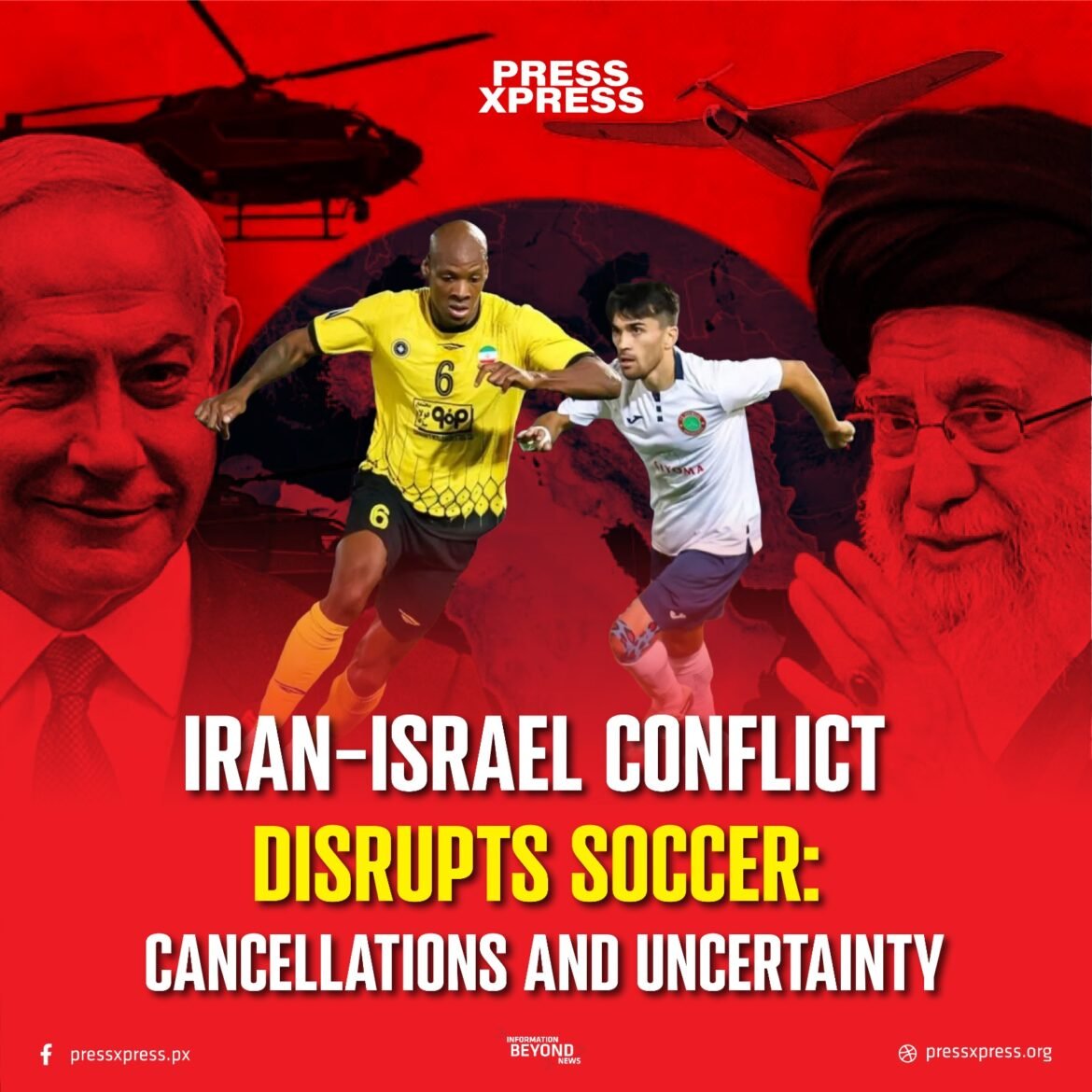The ongoing Iran-Israel conflict is extending its influence beyond politics and military action, now disrupting the world of soccer. Recent escalations in the Middle East—marked by Iran’s bombing of Israel and Israel’s threats of retaliation—are causing ripples that reach far beyond the battlefield, with serious implications for sports.
War is always a tragedy, primarily affecting human lives, but its consequences don’t stop there. Soccer, a global sport that brings nations together, is now facing its own challenges as the conflict intensifies. Scheduled matches and sports events are already being postponed, leaving the future uncertain for many teams and athletes.
One of the first notable disruptions occurred when a highly anticipated match in the Israeli Premier League between Beitar Jerusalem and Maccabi Haifa, set for October 1, was postponed due to the escalating violence. The Israel Football Association has continued with business as usual, releasing the list of players called up for international matches. Yet, there is widespread concern over how long sports activities can continue amidst the rising tensions.
As of now, seven additional matches are planned between Saturday and Sunday, but updates on their status are still pending. National teams are also affected. Israel is scheduled to face France and Italy in the Nations League, with the match against France moved to Budapest due to security concerns.
In an unexpected twist, Cristiano Ronaldo’s team has refused to travel for their upcoming matches, highlighting the growing anxiety around sports events in the region. Players and clubs are expressing concerns over safety, and the question remains: how long will soccer be able to continue amid such instability?
This unprecedented spillover from the political and military sphere into the sports world showcases the broad and unpredictable effects of the conflict. While leaders and governments grapple with escalating tensions, soccer—like other sectors—is caught in the crossfire, uncertain of what the future holds. As events unfold, the global soccer community waits to see whether sports will once again become a unifying force or if the situation will worsen, forcing even more cancellations and disruptions.
The conflict has turned what should be a season of competition into a season of uncertainty, where safety and stability are at constant risk. While the world watches for political resolutions, sports fans may have to prepare for further postponements and disruptions to their favorite matches.


